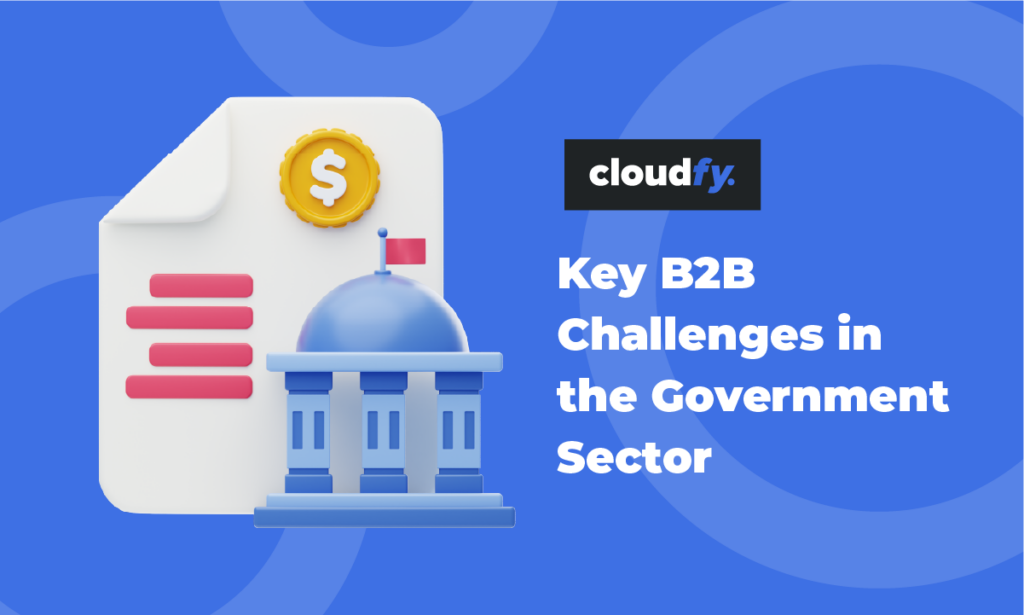Introduction
B2B ecommerce is changing fast. What was once a slow-moving space dominated by static portals and legacy systems is now entering a period of rapid transformation, driven by advances in artificial intelligence.
The global B2B ecommerce market was valued at USD 19.34 trillion in 2024 and is projected to reach USD 47.54 trillion by 2030, representing a 16.17 percent compound annual growth rate between 2025 and 2030 (Global Newswire).
This explosive growth highlights an urgent need for smarter, more scalable platforms. As B2B ecommerce continues to expand, businesses require more than just digital storefronts. They need intelligent systems that can automate, adapt, and support decision-making in real time.
The Opportunity is Now
These are not distant forecasts. The shift is already underway. AI investment is accelerating across the ecommerce space, and platforms that integrate intelligent, autonomous functionality are quickly gaining ground. Agentic AI sits at the forefront of this evolution.
Rather than simply following predefined rules or waiting for user input, agentic systems interpret data in real time, take action independently, and learn from every interaction. For B2B organisations, this shift is significant. It means ecommerce platforms that can anticipate customer needs, streamline procurement, and reduce friction across every stage of the buying process.
AI’s Potential Role in B2B Ecommerce
Agentic AI is not just another layer of automation. Gartner predicts that by 2028, 33 percent of enterprise applications will include agentic capabilities, up from less than 1 percent today. These systems will increasingly support, or even replace, routine decision-making in digital workflows.
What makes this particularly relevant for B2B is the complexity of the space. Manufacturers and wholesalers are often managing thousands of SKUs, bespoke pricing agreements, layered approvals, and recurring orders that depend on timing, budget, and contract terms. Introducing intelligence that can act within this structure, rather than simply respond to it is a game-changer.
What Is Agentic AI?
Artificial intelligence is nothing new in ecommerce. Most B2B companies are already familiar with AI in the form of chatbots, automated product recommendations, or dynamic pricing tools. These are examples of reactive systems that follow instructions based on predefined rules or user input.
Agentic AI marks a shift toward something more autonomous. These systems don’t just wait to be told what to do. They interpret data, make decisions, take action on behalf of users, and refine their approach over time. Think of it less as a smart tool, and more as a digital assistant with a clear goal: help users get what they need, faster and more efficiently.
In everyday terms, you can see early signs of agentic behaviour in email tools that summarise threads and draft responses, or scheduling assistants that rearrange meetings without manual input. These systems are acting with context and intent, not just automation.
In a B2B ecommerce environment, this means your platform doesn’t just host transactions—it helps manage them. From predicting the best time to reorder stock to proactively resolving purchase conflicts or suggesting bundled products, Agentic AI is about taking ownership of routine decision-making to remove friction and unlock efficiency.
The Unique Challenge of B2B Ecommerce
B2B ecommerce isn’t just B2C with larger order sizes. It involves entirely different dynamics. Manufacturers and wholesalers deal with layered pricing, credit limits, account-based permissions, and long-standing customer relationships that have traditionally been managed offline. They’re also expected to provide real-time stock updates, manage complex fulfilment rules, and offer seamless reordering experiences.
Even in mature B2B ecommerce setups, much of the process still relies on static logic, manual input, or offline steps. A buyer may still need to call a sales rep to verify a price, email to request a quote, or manually recreate a past order. These tasks slow things down and tie up internal resources.
But that same complexity is also what makes B2B such a compelling opportunity for AI. Buyer behaviour in this space tends to follow clear patterns. The same products, same cadence, same suppliers. Agentic AI can use that consistency to deliver smarter, faster experiences that reduce operational overhead and increase customer satisfaction.
What Agentic AI Could Mean for B2B SaaS and Ecommerce
In the B2B ecommerce world, Agentic AI has the potential to transform how platforms operate and how users interact with them.
A system with agentic intelligence could, for example, identify reorder patterns and proactively create draft orders at the optimal time. It could factor in stock levels, negotiated pricing, and shipping cut-offs, allowing buyers to approve an order in seconds rather than building it manually.
Procurement teams could rely on virtual AI assistants to navigate large catalogues, flag contract-specific items, surface better-value alternatives, and even automate internal approval workflows.
For manufacturers and wholesalers, AI could also be used to forecast demand, optimise inventory, and suggest smarter distribution strategies—reducing overstock, minimising stockouts, and improving operational efficiency.
On the customer-facing side, Agentic AI could tailor ecommerce portals to individual buyers based on their activity, contract terms, or purchase history. Rather than relying on rigid customer groups or static rules, the experience would evolve dynamically over time.
As language models improve, we’ll also see more conversational interfaces, where B2B buyers can ask for what they need in plain language, get helpful responses, and complete tasks all within the same environment. The platform becomes less of a system to navigate and more of a partner to work with.
The Risks and Challenges of Agentic AI
While the promise of Agentic AI is compelling, it’s not without challenges. Giving systems the autonomy to act on behalf of users introduces new complexities around accountability, transparency, and trust. In B2B environments, where transactions are often high-value and governed by strict contractual or regulatory frameworks, errors in decision-making or misaligned actions could carry significant commercial consequences. There’s also the question of data: Agentic AI requires vast, high-quality datasets to function effectively, and many businesses still face silos, inconsistencies, or governance issues that could undermine performance. As with any emerging technology, businesses must balance innovation with control, ensuring robust oversight, human-in-the-loop safeguards, and clear protocols for auditability.
How SaaS Systems Might Need to Evolve
For SaaS platforms to truly embrace Agentic AI, they need to move beyond offering standalone features and start thinking in terms of intelligent orchestration. That means building systems capable of interpreting goals, not just tasks; acting across workflows, not just within them. This will require a deeper integration of real-time data sources, more flexible architecture to support AI-driven decision-making, and interfaces that allow for human oversight without slowing things down. Crucially, SaaS B2B Ecommerce platforms must also embed strong data governance, user consent mechanisms, and transparent logic flows, so users trust the actions being taken on their behalf. The shift is not just technical but philosophical: from tools that execute instructions to systems that collaborate with users to get better outcomes, faster.
Which B2B Businesses Might Be Likely to Adopt Agentic AI First?
Some sectors are already beginning to invest in these capabilities. Early adopters tend to share three things: high transaction volumes, operational complexity, and strong digital growth ambitions.
Large-scale distributors and wholesalers are well-positioned to benefit. They manage enormous catalogues, process recurring orders, and often operate with tight margins where efficiency matters. Agentic AI can reduce the burden on internal teams and improve accuracy at scale.
Manufacturers with global supply chains are another strong candidate. These businesses need better forecasting, leaner procurement, and more intelligent customer interfaces, all areas where agentic AI can add value quickly.
We’re also seeing early use cases emerge in medical and industrial supply, where compliance, availability, and repeat purchasing are business critical. Likewise, B2B retailers with hybrid consumer channels can benefit from AI tools that adapt the experience to suit different buyer types.
These businesses all share a common thread: operational complexity, recurring transactional behaviours, and a clear incentive to streamline. For them, Agentic AI isn’t just a nice-to-have—it’s a practical solution for reducing manual effort, improving outcomes, and enabling smarter decisions at scale.
The Big Picture
B2B ecommerce is no longer just about digitising transactions. It’s about building platforms that think, act, and adapt on behalf of users.
Agentic AI brings the potential to reduce friction, increase speed, and deliver deeper value, not by replacing people, but by helping them focus on what matters most. The systems that emerge from this shift will redefine what B2B ecommerce looks like, from ordering to operations to customer experience.
This isn’t a distant vision. The pieces are already in place. The companies that act now will help shape the next era of intelligent commerce and set the pace for everyone else.





